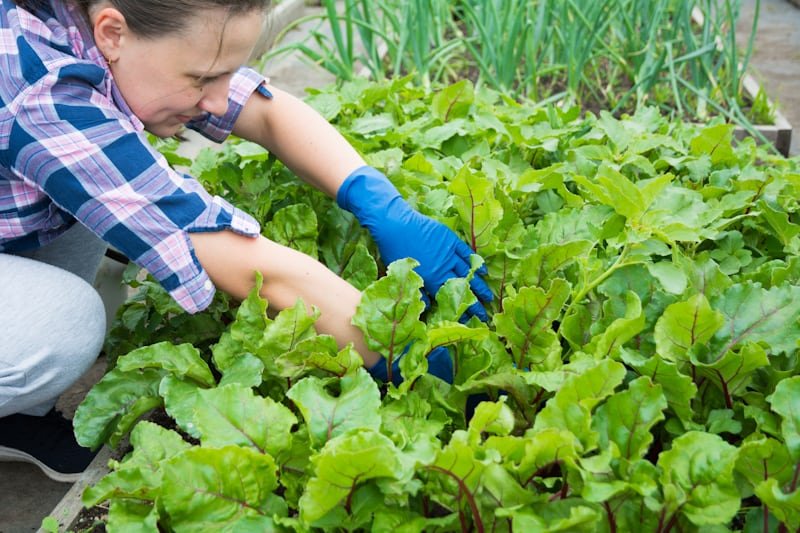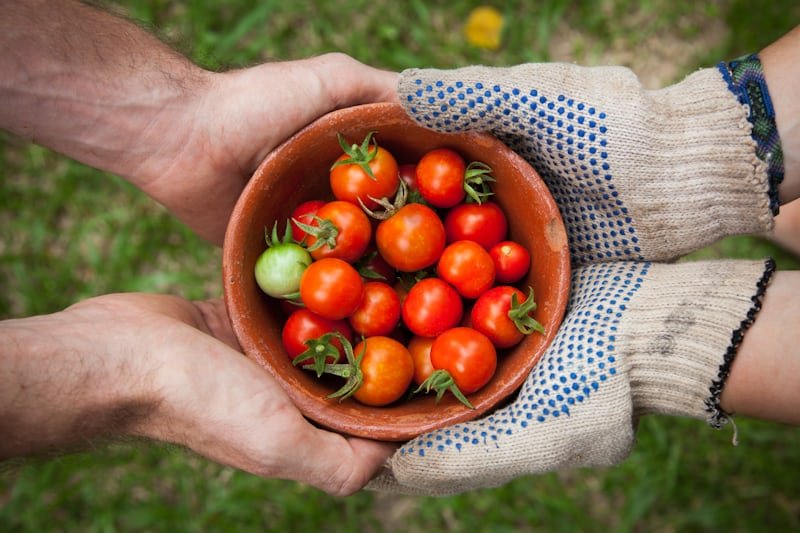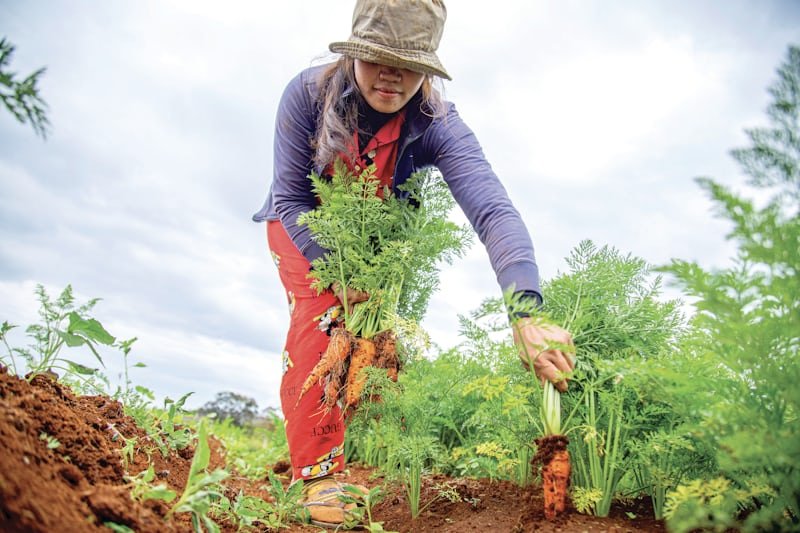May in the Northern Hemisphere means gardening season kicks into full swing. Both expert and amateur gardeners are consulting their Plant Hardiness Zones Map (which has changed this. year, by the way) and heading out to their local plants shops to buy vegetable and flower starters, fillings spots amid perennials that are popping up and seedlings started earlier indoors.
Gardening is an enjoyable hobby for some and a dietary necessity for others, but no matter what motivates you to tend a garden, there’s no question that it’s good for you. In fact, gardening might just be the best exercise there is for overall health.
Anyone who’s worked in their yard knows it’s surprisingly physical. We have these visions of old people puttering around in their gardens, but that “puttering” is actually a solid workout. Pulling weeds and digging holes may not give you jacked biceps and a snatched waist, but when it comes to the kinds of recommended exercise that can help you live a longer, healthier life, it’s hard to beat gardening.
Here are some of the physical, mental and spiritual health benefits of gardening:
Gardening is good for your heart
The Centers for Disease Control consider gardening an official form of exercise, and according to the Mayo Clinic, you might burn as many calories during a busy gardening session as you do at the gym. It’s recommended that people get 150 minutes a week of cardiovascular exercise, so gardening for half an hour five days a week will tend both your plants and. your heart.
Gardening has also been shown to lower stress levels. Chronic stress is a significant risk factor for heart disease, gardening can help mitigate that risk.

<a href="https://images.unsplash.com/photo-1673865642228-288f5db96954?w=800&auto=format&fit=crop&q=60&ixlib=rb-4.0.3&ixid=M3wxMjA3fDB8MHxzZWFyY2h8MTQxfHxnYXJkZW5lcnxlbnwwfDB8MHx8fDI%3D">Photo by Bermix Studio on Unsplash</a>
Gardening works every major muscle group
According to Maryland Primary Care Physicians, “Digging, lifting bags of mulch and pushing wheelbarrows all provide strength training similar to weight lifting, which leads to healthier bones and joints.” Such activities work every major muscle group—legs, buttocks, arms, shoulders, neck, back and abdomen.
One thing gardening has going for it over other forms of exercise is that most of that muscle work is low-impact, so you get the benefit of a good workout without jarring and stress on your joints.
Gardening can help keep your brain sharp
Those of us who haven’t gardened much might assume that it’s a pretty basic activity—put plants in dirt, water them sometimes, and voila! A garden. Alas, it’s not that simple at all, but the complexity of it actually part of why it’s so good for your brain. There are thousands of plants, each with their own specifications for growing and thriving. You have to know about soil composition, you have to take humidity levels, temperatures and sunlight into consideration, and as the weather changes you have to adjust and problem-solve to get the most out of your garden. Perhaps that’s one reason why a study found that daily gardening is associated with a 36% reduced risk of dementia.
Gardening is good for overall mental health
In the digital age of constant distractions pulling our attention in a million different directions, gardening can offer a much-needed respite. As Penn State Master Gardener Kayla Oaster writes, “Connecting with the natural world, in general, helps relieve people from attention fatigue. Gardening is a great hands-on experience with nature. Working with the soil, smelling the plants and dirt, feeling the different textures, and seeing all the green foliage and flowers can help relax the mind and ground yourself. When you ground yourself, you reduce stress, anxiety, and even built-up anger.”
Psychologist Seth J. Gillihan PhD takes it several steps further, explaining how gardening can help with mental health by helping people practice acceptance of things they can’t control (weather, organic growth), moving beyond perfectionism and developing a growth mindset (mistakes will be made), staying in the present (focusing on what’s in front of you) and reducing stress.

Gardening connects you to community
While gardening is often a solo activity, the hobby of it connects you to a whole community of gardeners who are often happy to share knowledge, seeds, cuttings and more. Additionally, you can share whatever you grow—vegetables, flowers, whatever—with your neighbors and friends. Gardening offers plenty of opportunity to socialize, and having strong social ties is linked to increased resilience to anxiety and depression.
Gardening can be a meditative—some might say spiritual—practice
As you connect your hands with the Earth on the outside, you can also connect with yourself—your soul, your spirit, whatever you want to call your inner being—on the inside. Many people find gardening to be a meditative practice that helps them practice mindfulness and inner peace and connection And there are so many qualities needed for gardening that parallel qualities used in spiritual practice—patience, perseverance, surrendering control, reverence for beauty and more. Gardening means being up close and personal with nature, which can help people feel more connected to the source of life, whatever they perceive or beleive it to be. Many religion’s scriptures use plant and garden metaphors to elucidate spiritual concepts, so gardening can help us deepen our understanding of spiritual teachings as well.
If you’re looking for a comprehensive exercise that will not only provide a healthy workout for your body but also help sharpen your mind and nurture your spirit, try planting and tending a garden. Just make sure it’s large or complex enough for you to reap the full benefits.







































